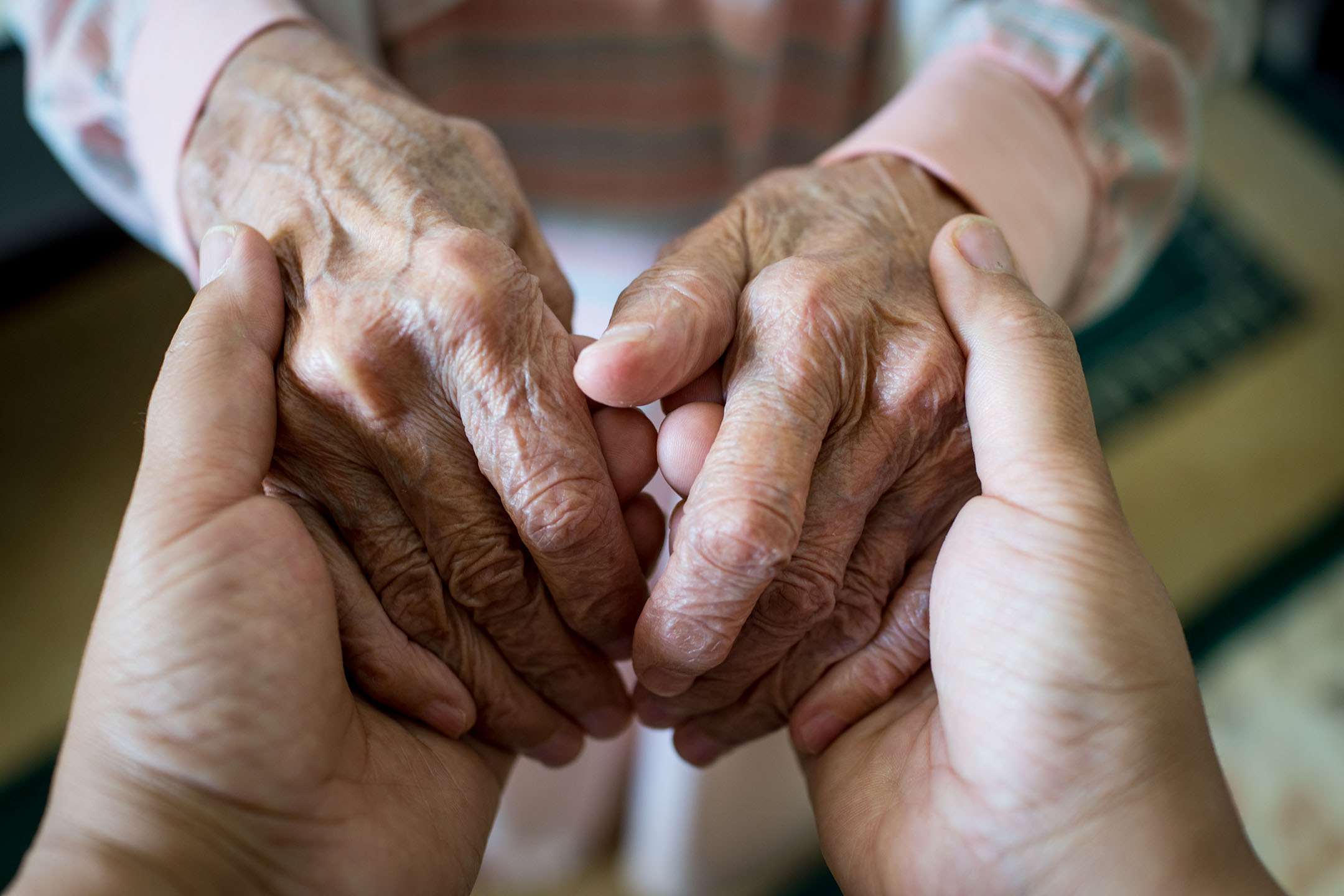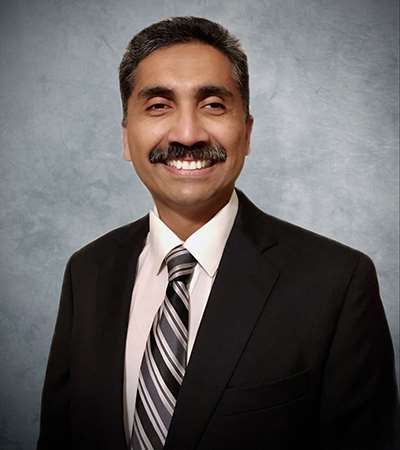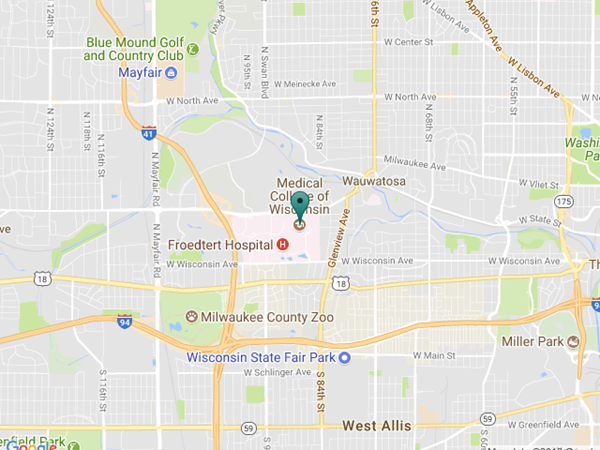Developing Resilience to Ease Anguish in Mourning (DREAM)

The goal of our transdisciplinary program is to:
- Determine psychosocial and neurobiological factors (or biological markers) that can complicate acute grief following the loss of a loved one
- Advance our neurobiological understanding of prolonged grief disorder and bereavement-related depression
- Identify interventions that may prevent the development of grief-related complications
- Identify treatments that can improve health outcomes in those who experience prolonged grief disorder and bereavement-related depression
- Share with the community resources and information regarding bereavement and its consequences
- Build academic-community partnerships in Wisconsin and beyond to improve care for the bereaved
- Educate and train both health professionals and lay public on (a) acute and integrated grief; (b) diagnosing and treating prolonged grief disorder and other grief-related complications; and (c) strategies to prevent grief-related complications.
Program Director's Message | Joseph S. Goveas, MD
Welcome to the MCW DREAM Program
Experiencing the death of a loved one is inevitable, and grief is a natural response. Most acutely grieving adults are resilient and recover their pre-loss functioning within a year. However, a significant minority develop complications such as prolonged grief disorder (or complicated grief) and bereavement-related depression. The development of these complications is especially high following the death of a life partner or a child. The public health consequences of prolonged grief disorder and bereavement-related depression are enormous, and include declines in physical health and cognition, poor quality of life, functional impairment, premature mortality, and an increased risk of suicide.
Despite the magnitude of this problem, we cannot distinguish those grieving individuals who are resilient and will successfully transition to integrated grief from those who are prone to develop prolonged grief disorder or bereavement-related depression. Thus, it is not known who among the grieving individuals warrants early intervention, what treatments are most effective, and when to initiate treatment.
DREAM is a transdisciplinary program that examines factors that can complicate acute grief following the loss of a loved one, with the goal of identifying interventions that prevent grief-related complications. We also aim to identify treatments that can improve long-term health outcomes in those experiencing prolonged grief disorder and bereavement-related depression.

Professor, Psychiatry and Behavioral Medicine
Professor, Institute for Health and Equity
Vice-Chair and Director, Geriatric Psychiatry
jgoveas@mcw.edu | (414) 955-8970
Current Research Studies
Past Research Studies

Research Study Participation
Are you interested in participating in the Emotion Regulation in Complicated Grief Study?
Complete the survey or contact Stacy Claesges, Research Coordinator, with questions.
sclaesge@mcw.edu | (414) 955-8970

Froedtert & the Medical College of Wisconsin Grief Clinic
The Grief Clinic at the Froedtert & MCW Tosa Behavioral Health Center serves adults who have experienced the death of a loved one. This clinic focuses on improving the health of bereaved individuals.
The clinic has:
- Therapists who can assist individuals during their acute grieving process.
- Therapists specifically trained in complicated grief therapy (CGT), and
- Psychiatrists who treat grief-related complications, including but not limited to prolonged grief disorder; bereavement-related depression and anxiety; and post-traumatic stress disorder.
To schedule an appointment:
Call (414) 955-8952
In The News
Flying Solo: Evolving the Thinking on Women Who Age Alone
Zosia Bielski
The Globe and Mail | October 6, 2023
The Pain of Grief
Charlotte Huff
Cancer Today | June 22, 2022
Pandemic Takes Toll on Those Who Grieve
Terry D'arrigo
Psychiatric News, American Psychiatric Association | February 4, 2021
Mental Health: The Emotional Toll of the Pandemic, How Older Adults Are Grieving
Kathy Hardy
Today’s Geriatric Medicine (Vol. 14 No. 1 P. 26)
How COVID-19 Has Made The Grieving Process So Much Harder
WUWM 89.7
Milwaukee’s NPR Lake Effect's Joy Powers talks with Dr. Joseph Goveas about how COVID-19 has made coping with the loss of a loved one more difficult.
Medical College of Wisconsin to Study Brain Changes Following Loss of Loved One to Prevent Grief-Related Complications
Medical College of Wisconsin | August 7, 2020
Urban Milwaukee
Grief over covid-19 deaths may be unusually severe and long-lasting
Alice Klein
NewScientist | July 8, 2020
COVID-19 can trigger complicated grief among those who lost loved ones, experts warn
John Diente
International Business Times | July 10, 2020
COVID-19 May Lead to Uptick in Cases of Prolonged Grief Disorder
Psychiatric News Alert | July 1, 2020
Milwaukee study to focus on growing public health issue of late-life depression
Milwaukee Independent | November 12, 2017
Study finds that education, good health, and positive emotional wellbeing contribute to improved memory health in older women
Medical College of Wisconsin
Urban Milwaukee | February 29, 2016
Other Resources

Recent Publications
-
Prolonged Grief Disorder: Unveiling Neurobiological Mechanisms for a Shared Path Forward.
(Goveas JS, O'Connor MF.) Am J Geriatr Psychiatry. 2024 May;32(5):535-538 PMID: 38176964 SCOPUS ID: 2-s2.0-85182365610 01/05/2024
-
(Goveas JS.) Am J Geriatr Psychiatry. 2023 Dec;31(12):1058-1061 PMID: 37543462 PMCID: PMC10703544 SCOPUS ID: 2-s2.0-85166923505 08/06/2023
-
(Shadyab AH, Larson JC, Rapp SR, Shumaker SA, Kroenke CH, Meliker J, Saquib N, Ikramuddin F, Michael YL, Goveas JS, Garcia L, Wactawski-Wende J, Luo J, Hayden KM, Chen JC, Weitlauf J, Baker LD.) J Gerontol A Biol Sci Med Sci. 2022 Dec 06;77(Suppl 1):S42-S50 PMID: 35235646 PMCID: PMC8903468 SCOPUS ID: 2-s2.0-85133327333 03/03/2022
-
(Goveas JS, Ray RM, Woods NF, Manson JE, Kroenke CH, Michael YL, Shadyab AH, Meliker JR, Chen JC, Johnson L, Mouton C, Saquib N, Weitlauf J, Wactawski-Wende J, Naughton M, Shumaker S, Anderson GL.) J Gerontol A Biol Sci Med Sci. 2022 Dec 06;77(Suppl 1):S31-S41 PMID: 34915558 PMCID: PMC8754805 SCOPUS ID: 2-s2.0-85136612146 12/17/2021
-
(Blair NP, Cohen AD, Ward BD, Claesges SA, Agarwal M, Wang Y, Reynolds CF 3rd, Goveas JS.) J Psychiatr Res. 2022 Dec;156:252-260 PMID: 36272343 SCOPUS ID: 2-s2.0-85140273934 10/23/2022
-
(Korthauer LE, Goveas JS, Rapp SR, Espeland MA, Shumaker SA, Garcia KR, Rossom RC, Garcia L, Tindle HA, Salmoirago-Blotcher E, Wassertheil-Smoller S, Zaslavsky O, Cochrane B, Sink KM, Masaki K, Driscoll I.) Int J Geriatr Psychiatry. 2022 Nov;37(11) PMID: 36205005 PMCID: PMC9616073 SCOPUS ID: 2-s2.0-85139274577 10/08/2022
-
Commentary on Cannabinoids for Agitation in Alzheimer's Disease.
(Goveas JS.) Am J Geriatr Psychiatry. 2021 Dec;29(12):1264-1266 PMID: 33839012 PMCID: PMC8449786 SCOPUS ID: 2-s2.0-85103976184 04/12/2021
-
(Reiland H, Banerjee A, Claesges SA, Giuca AM, Hillard CJ, Reynolds CF 3rd, Goveas JS.) Psychiatry Res Commun. 2021 Oct;1(1) PMID: 35928209 PMCID: PMC9345326 08/06/2022
-
Grief and the COVID-19 Pandemic in Older Adults.
(Goveas JS, Shear MK.) Focus (Am Psychiatr Publ). 2021 Jul;19(3):374-378 PMID: 34690607 PMCID: PMC8475942 10/26/2021
-
(Kang M, Bohorquez-Montoya L, McAuliffe T, Claesges SA, Blair NO, Sauber G, Reynolds CF 3rd, Hillard CJ, Goveas JS.) Front Psychiatry. 2021;12:783187 PMID: 34955928 PMCID: PMC8692767 SCOPUS ID: 2-s2.0-85121649643 12/28/2021
-
Commentary on “Cannabinoids for Agitation in Alzheimer's Disease”
(Goveas JS.) American Journal of Geriatric Psychiatry. December 2021;29(12):1264-1266 SCOPUS ID: 2-s2.0-85103976184 12/01/2021
-
Circulating endocannabinoid concentrations in grieving adults.
(Harfmann EJ, McAuliffe TL, Larson ER, Claesges SA, Sauber G, Hillard CJ, Goveas JS.) Psychoneuroendocrinology. 2020 Oct;120:104801 PMID: 32682172 PMCID: PMC7348598 SCOPUS ID: 2-s2.0-85087803094 07/19/2020
-
Amygdala Functional Connectivity Features in Grief: A Pilot Longitudinal Study.
(Chen G, Ward BD, Claesges SA, Li SJ, Goveas JS.) Am J Geriatr Psychiatry. 2020 Oct;28(10):1089-1101 PMID: 32253102 PMCID: PMC7483593 SCOPUS ID: 2-s2.0-85082764762 04/08/2020
-
(Goveas JS.) Am J Geriatr Psychiatry. 2019 Dec;27(12):1331-1333 PMID: 31526546 PMCID: PMC7716776 SCOPUS ID: 2-s2.0-85072176914 09/19/2019
Acknowledgements
- The National Institute of Mental Health (NIH-NIMH)
- Advancing a Healthier Wisconsin Endowment (AHW)
- Costigan Family Foundation
- Clinical & Translational Science Institute (CTSI) Adult Translational Research Unit
- MCW Center for Imaging Research (CIR)
- MCW Department of Psychiatry and Behavioral Medicine
- MCW Neuroscience Research Center
Contact Us
Psychiatry and Behavioral Medicine
Research Park Center
10000 W. Innovation Dr., 3rd Floor
Milwaukee, WI 53226
(414) 955-8970
Program Director
Joseph S. Goveas, MD
Professor, Psychiatry and Behavioral Medicine
Professor, Institute for Health and Equity
Director, Geriatric Psychiatry




